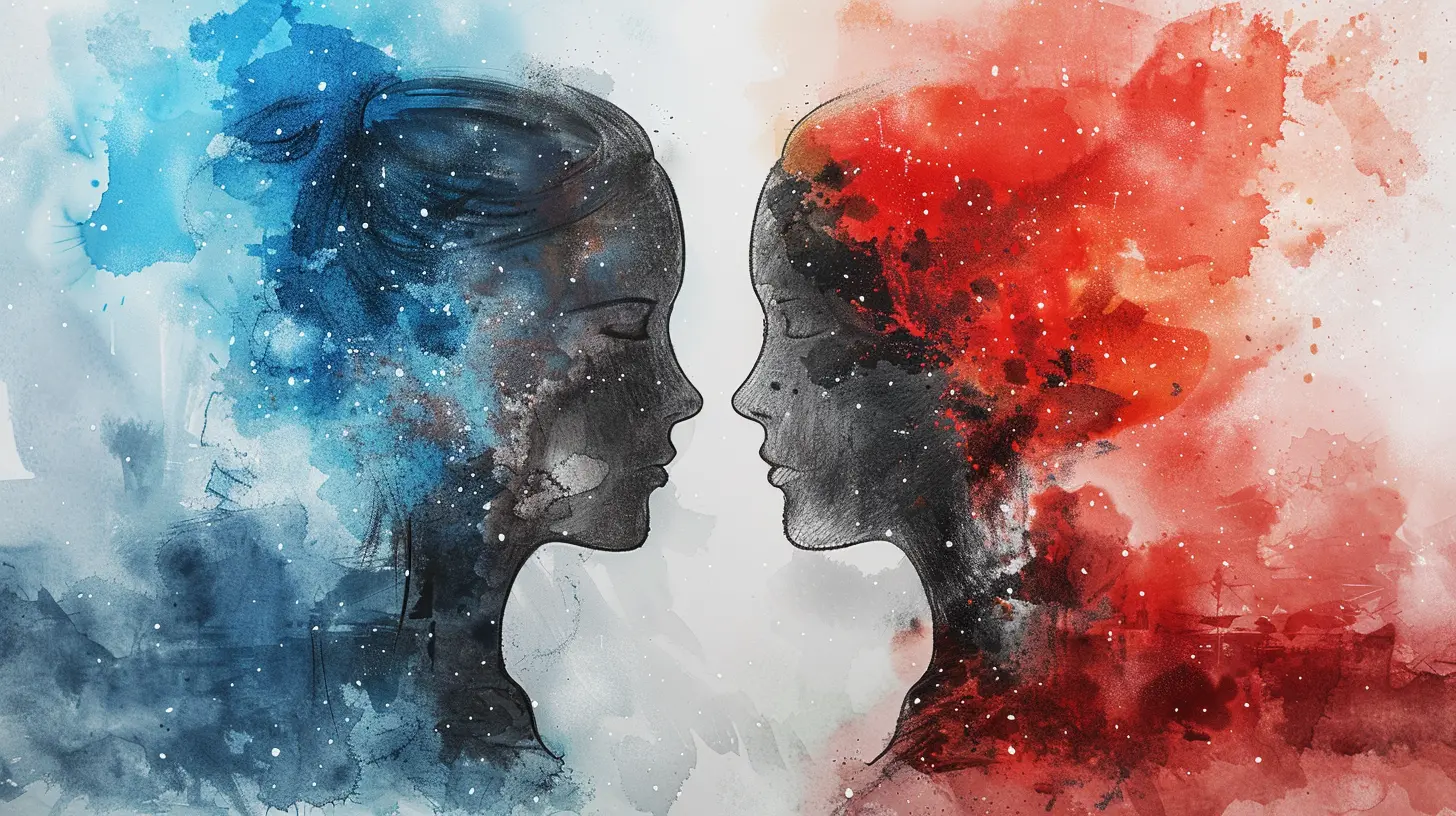How Emotional Dependency Impacts Your Decision-Making Process
7 June 2025
Ever felt stuck in a loop of second-guessing yourself or constantly needing someone else's approval before making even the smallest choices? That might not be just indecisiveness—it could be emotional dependency at play. This deeply rooted psychological pattern can sneak into your everyday decision-making, clouding your judgment and leaving you feeling powerless over your own life.
In this article, we’re diving deep into how emotional dependency impacts your decision-making process. We’ll talk about what emotional dependency really is, where it comes from, how it shapes your choices, and—most importantly—how to break free from its grip. So, grab a coffee and let’s get real.
What Is Emotional Dependency?
Before we get into how it messes with your decisions, let’s define it.Emotional dependency is that overwhelming need to get emotional validation, support, or approval from others. It’s like you’re emotionally tethered to someone else’s opinions, moods, or behaviors. When they’re happy, you’re happy. When they disapprove, you spiral. Sound familiar?
This dependency can show up in relationships with partners, friends, parents, or even bosses. And while it's natural to seek support from people we care about, emotional dependency takes it a step too far—it crosses into territory where your sense of self feels incomplete without constant reassurance.
The Roots of Emotional Dependency
So where does this cycle begin? Spoiler alert: It usually starts early.Childhood Experiences
If you grew up in an environment where love was conditional or emotional needs weren’t consistently met, your brain may have learned that approval equals safety. Maybe expressing your thoughts led to rejection or punishment. Over time, you learned not to trust your own instincts—and instead, you looked outward to feel okay.Low Self-Esteem
When you don’t believe in your own worth, you tend to outsource your confidence. Emotional dependency thrives in insecure soil. Without inner validation, external approval becomes your compass—even if it pulls you in the wrong direction.
The Tug-of-War Between Emotions and Logic
You know those moments when your gut says one thing, but your mind is confused because someone else’s opinion is pulling you the other way? That’s emotional dependency clashing directly with your decision-making process.Emotions Override Rational Thinking
Emotional dependency fuels anxiety, fear of abandonment, and an obsession with approval. When you're overwhelmed by emotions, your logical brain—the one tasked with making rational decisions—gets drowned out. You’re no longer asking, “What’s best for me?” but “What will keep them happy?”Imagine trying to steer a car in thick fog, with someone yelling directions from the backseat. That’s exactly what it feels like.
The Key Ways Emotional Dependency Warps Decision-Making
Emotional dependency can creep into every corner of your life—from what you wear, to who you date, to whether you take that career leap. Let’s break down how that happens.1. Fear of Disapproval Paralyzes You
When your self-worth hinges on others liking your choices, you’re less likely to take bold steps. This fear of making the “wrong” decision can leave you stuck in comfort zones far too long.For example, let’s say you want to switch careers. But your partner thinks it's risky. If you're emotionally dependent on their approval, you might shelf your dream—not because it's the wrong move, but because you're terrified of losing their support.
2. You Seek Constant Reassurance
Emotional dependency turns decision-making into a group project. You ask five people before answering a text message. You poll your friends before posting on social media. You avoid making choices alone because deep down, you don’t trust yourself.This leads to decision fatigue. Instead of trusting your gut, you're spinning your wheels trying to interpret what others might think.
3. You're Easily Manipulated
Let’s not sugarcoat it—emotional dependency puts you at risk of being manipulated. When people know you'll bend over backwards for their approval, some will take advantage. They may guilt-trip you, withhold validation, or push you toward choices that serve them, not you.This doesn’t make you weak—it means your emotional radar is tuned to other people’s needs over your own. That’s a dangerous place to live.
4. You Struggle With Boundaries
Healthy decision-making requires clear boundaries. But when you’re emotionally dependent, setting limits feels selfish or risky. You agree to things you don’t want to do. You say “yes” when your whole body is screaming “no.”This people-pleasing loop not only undermines your confidence but also erodes your sense of autonomy.
Real-Life Scenarios: Emotional Dependency in Action
Want to see how this plays out in real life? Let’s walk through a few common situations.Relationship Decisions
You’re dating someone who’s emotionally distant. Your instincts tell you it’s not working. But you stay. Why? Because you’re more afraid of being alone than being unfulfilled.That fear drives your decision—not love, not logic.
Career Choices
You're offered a promotion that would mean more hours or moving cities. You want it. But your family thinks it's too much. Instead of negotiating or even considering it deeply, you turn it down—to keep the peace.The result? Resentment. And regret.
Everyday Life
Even small decisions take a toll. You dress a certain way because your partner prefers it. You eat food you don’t like to fit in. You buy things you can’t afford because someone else has them.Bit by bit, you lose pieces of yourself.
Why It’s So Hard to Break the Habit
If emotional dependency is causing all this chaos, why don’t we just stop doing it? If only it were that simple.It Feels Safer
Depending on others provides a temporary sense of security. It’s like emotional bubble wrap—it protects you from rejection or failure. But it also keeps you from growing.You're Rewarded for It
Unfortunately, many cultures and families praise self-sacrifice and “being nice” at the cost of personal boundaries. You may be seen as “loyal” or “loving” when you’re really just unable to say no.It Becomes Your Identity
When you’ve spent your whole life looking to others to guide you, it’s terrifying to suddenly rely on your own inner compass. What if you mess up? What if no one agrees?So, you stay in the pattern because it feels familiar—even if it's toxic.
How to Regain Control Over Your Decisions
Here’s the good news: You absolutely can change this. It takes time, awareness, and effort, but it’s 100% doable. Let’s run through some powerful strategies to take your decision-making back.1. Build Self-Awareness
Start by noticing when you're outsourcing your decisions. Ask yourself:- Am I making this choice for me or for someone else?
- What do I really want?
- Would I still choose this if nobody else ever knew?
This kind of honest check-in is the first step toward breaking the pattern.
2. Strengthen Self-Trust
Trusting yourself is like building muscle—start small. Make simple decisions without consulting anyone. Pick the restaurant. Buy the shirt. Send the email.Each small win reinforces the idea that you can rely on yourself.
3. Identify Your Triggers
What kinds of situations make you feel the need to seek approval? Is it around authority figures? Romantic partners? Social media?Once you understand your triggers, you can prepare for them instead of reacting automatically.
4. Set Boundaries (And Stick to Them)
Boundaries aren’t walls—they’re filters. They help you protect your time, energy, and emotional health. Start saying “no” when you mean it. Say “I’ll think about it” instead of agreeing on the spot. These small shifts make a big difference.5. Consider Therapy
Let’s not underestimate the power of professional help. A therapist can help unpack the root causes of emotional dependency and give you tools to rebuild your self-worth from the ground up.The Freedom on the Other Side
Imagine waking up and making decisions without fear, without the mental tug-of-war. You follow your gut. You trust your judgment. You listen to others, sure—but their opinions no longer define you.That’s what letting go of emotional dependency feels like. And no, it doesn’t mean you stop caring about others. It means you start caring about yourself too.
It’s about balance. And it’s about time.
Final Thoughts
Emotional dependency can silently sabotage your ability to make clear, confident decisions. It pulls you away from your values, your voice, and your vision. But the moment you become aware of it, you start regaining power.You’re not here to live someone else’s life. You’re here to create your own path—one choice at a time.
So the next time you feel torn between what you want and what someone else expects, pause. Breathe. Ask yourself: “Whose life am I living?”
Because the only person who truly knows what’s right for you—is you.
all images in this post were generated using AI tools
Category:
Emotional DependencyAuthor:

Gloria McVicar
Discussion
rate this article
2 comments
Fenn McClintock
Emotional dependency is like letting your pet goldfish steer your car—cute but definitely not a safe way to drive!
June 9, 2025 at 4:05 PM

Gloria McVicar
That's a clever analogy! Emotional dependency can indeed cloud judgment and lead to risky decisions. Thanks for sharing your insights!
Vito McGuire
Emotions really shape our choices!
June 7, 2025 at 2:34 PM

Gloria McVicar
Absolutely! Emotions play a crucial role in our decision-making, often guiding us more than logic.


